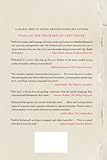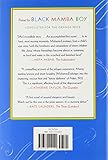The Orchard of Lost Souls is not an easy read. The writing is lucid, the events gripping and the characters, for the most part, delineated with depth and detail.
Still, it is not an easy read—and rightly so. Nadifa Mohamed demands the reader’s engagement with the history of a land, her land—a history marked with a turbulence that has still not been laid to rest. She does not tell a story that would be easy to understand if one were not paying close attention to the political, geographical and temporal markers and she most certainly does not tell a story that is easy to digest. The claustrophobia and violence of the years 1987-88 in Somalia, a country that would soon be plunged into a bloody and lengthy civil war, might not make for a comfortable reading, but it makes for a compelling one.
The story revolves chiefly around three women: Kawsar, a wealthy widow in her fifties with a past that leaves her violently embittered about the repressive regime; Filsan, a young soldier in the army posted to Hargeisa and anxious to prove her mettle in squashing ‘trouble-makers’; and Deqo, a child shunted from orphanages to refugee camps who agrees to be rigorously coached for a public performance honoring the dictator in exchange for a pair of shoes.
It was a hard way to earn a pair of shoes but for Deqo it was worth it. A month of dance lesson has taught her the Hilgo, Belwo, Dudi and the overly complicated Halawalaq.
A celebration marking the military coup bringing the regime to power is the public event that binds these characters together in a moment of sudden contact. After having impacted each others’ lives in indelible ways, they part ways with the narrative following their individual paths. The regime is, in fact, the Barre regime. The names are never spelt out clearly, but Mohamed does not leave anyone in doubt about who the figures looming over the narrative and Somalia really are. Here, for example, is the first description of the man at the helm, ‘Oodweyne’:
Beyond Dahabo’s pointed finger is a mammoth painting of the dictator, hanging over the stadium like a new sun, rays emerging from around his head. The painters have tried to soften that merciless, hangdog face but have succeeded only in throwing it off balance – the chin too long, the nose too bulbous, the eyes asymmetrical. The only accurate part is the short, clipped moustache modelled on that German leader.
When Kawsar sees Deqo being beaten by some women of Guddi (the neighborhood watch for the regime) for forgetting her steps during the performance, she rushes to her aid. Filsan, irritable about having been posted to Hargeisa from the center of things at Mogadishu, sees this as nothing but a nuisance and bundles Kawsar unceremoniously into a police van and carts her off to prison. Filsan returns to the celebrations and is seemingly dignified with the honor of General Haaruun’s attention but the events that follow bring home to her that her womanhood will always consign her to the position of a glorified sexual object no matter her capabilities. In a fit of impotent rage, she goes back to prison to assert her authority over Kawsar. When she perceives a lack of deference from Kawsar, Filsan beats her to an inch of her life—breaking her hip and rendering her bedridden for the rest of her life. Deqo, in the meantime, runs away and the next time we see her she is fending for herself and none too comfortably.
Kawsar, Filsan and Deqo have extremely distinct voices. Mohamed inhabits each woman’s consciousness in turn and proves that she is capable of writing three women of different ages and backgrounds sensitively and with depth without any jarring or gimmicky effects. Kawsar’s husband was an upright police chief, edged out of power when he refused to toe the line. Her young daughter, her only surviving child after a long series of miscarriages, kills herself after a night in jail that damages her irrevocably. Kawsar pours the entirety of her energy into her orchard, one in which the tiny corpses of her stillborn children are buried. Mohamed’s prose, in the description of the orchard, seems to attain an almost fantastical scope—
In her orchard the trees had been born from deaths; they marked and grew from the remains of the children that had passed through her. She never picked the fruit that fell from them, believing it a kind of cannibalism, but out of those soft, unshaped figures had grown tall, strong, tough-barked trees that blossomed and called birds to their branches and clambered out over the orchard walls to the world beyond… What mysterious animals must be nosing through its undergrowth at this hour, she wonders; she has never seen it this late and feels a sudden stab at the realization that she never will. She could wake Nurto up and demand that she carry her over but there would be no pleasure then; it needed solitude and unhurried time to watch the night-blooming flowers quietly yawn, and for the rustle of the grass to be heard over the owls, dogs and cicadas. She would wait until all those delights could be felt in her bones through the earth.
The orchard is depicted as strangely lush. One realizes with a jolt that it is perhaps language retreating, when confronted with unutterable sadness into the sphere of the vividly sensual.
Filsan’s history is one of constantly striving to prove herself. She passes from the scrutiny of her father, who beats her viciously when he imagines she is following in the footsteps of her reprobate mother—into another male sphere where, as one of the tests of her competence, she is charged with destroying the water containers around the villages suspected of housing rebels. Desperate to establish her strength, Filsan never stops to question the ‘ideals’ she is expected to believe in. This unswerving conviction comes crashing down when she is suddenly face-to-face with the reality of Somalia—in an incident of such unutterable cruelty that one needs a moment to recover from the reality of a land truly being ‘bled dry’.
Deqo is perhaps the most sparkling creation in The Orchard of Lost Souls. Her character might not have the nuanced nature of Kawsar’s portrayal or the conflicted inner life that marks Filsan; but in her young life she sees misfortunes enough to last her a lifetime. She lives in a barrel and scraps for food, works as a maid in a brothel, and fights tooth-and-nail to escape the loss of agency over her body. But while she does not know why the grown men around her keep tearing each other to pieces, she retains a core of innocence and humanity that compels her to fashion a burial for a man on the street she sees murdered the night before. Life teaches her very early to be cautious and look out for herself—but yet she goes through life with an innocent defiance and basic kindness that is at odds with the world around her.
When the lives of the three women entwine again towards the end—it feels like a much-needed respite to the reader in the landscape of a country literally being decimated to the ground. A kernel of optimism survives and sends out defiant roots in Mohamed’s writing even as she depicts a repressive government clamping down on freedom. This spirit is best embodied in Deqo and it is fitting that she should be the one to bring and hold the strands of these three lives together with the hope of a new beginning, however humble.
The Orchard of Lost Souls might be about horrifying events and regrettable actions but it is also about survival and responsibility. There is a dignity, however negligible, in the human capacity to re-evaluate one’s position and to choose to turn away from the path that one has been expected to take—and it is on this note of possibility and agency that Mohamed chooses to end.
Upasana Dutta is completing her Masters in English Literature at Jadavpur University, Kolkata. Her translations have appeared in Hachette India’s publication The Crazy Tales of Pagla Dashu and Co., and her essay has been published by Coldnoon, a literary journal of travel writing. She also volunteers for an organization that works for the rescue and rehabilitation of women and children who are victims of trafficking and violence.


